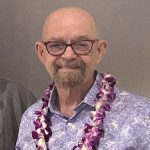What’s the most helpful thing anyone has said to you over your years living with HIV?
“You are a fighter. Be hopeful. There are always new treatments in development. And HIV does not define you.”
What change or development in your treatment for HIV has most affected your life—for better or worse?
All of them have made my life better. When I was diagnosed in 1989, there was only AZT, which was controversial and came with unpleasant side effects. Since then everything has been an improvement. I expected to be dead at 25—about five years after I found out I was HIV positive. But as the treatments got better, I got better.
What is your refuge from thinking about and dealing with your health?
I swim competitively with Team New York Aquatics here in NYC, and I keep myself very busy designing fashion, making art and writing.
What has been your major economic challenge since testing positive?
In the early years, figuring out how I was going to pay for treatment and medication was a nightmare. I didn’t have insurance much of the time, and the bureaucracy was hideous. We should all have free health care. It’s ridiculous [that we don’t].
What one thing has most aided your survival, and how difficult is it to overcome stigma?
I think becoming mentally OK with being HIV positive really helped me. I have been poz for so long that it is no longer an issue for me at all. I am very aware of the stigma, but I am confident enough not to care what other people think. HIV can be very isolating, so I think it’s important to reach out to others in the same situation or to friends and family you can count on for support.
Do you think there will be a cure in your lifetime—and if so, will you benefit from it?
Yes, I do think there will be. However, I’m not planning on it. Hopefully I will benefit from it. That will be odd because HIV has become such an integrated part of my life. I’d be more than happy to let it go.
What advice would you give to someone newly diagnosed?
“You are not alone. There are a ton of people who understand what you are going through and are willing to help you. Be hopeful and optimistic, as there are many successful treatment options available. Be proactive and take care of yourself.”


Jack Mackenroth Clay Patrick McBride
Jack Mackenroth
Project Runway contestant, advocate and athlete, positive for 22 years






Comments
Comments